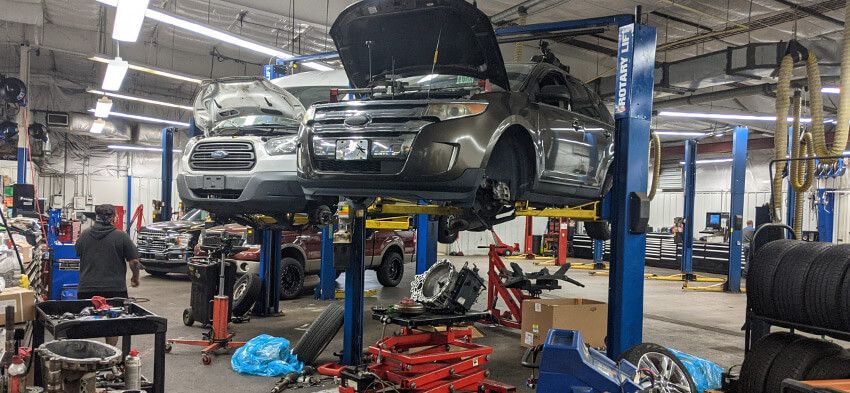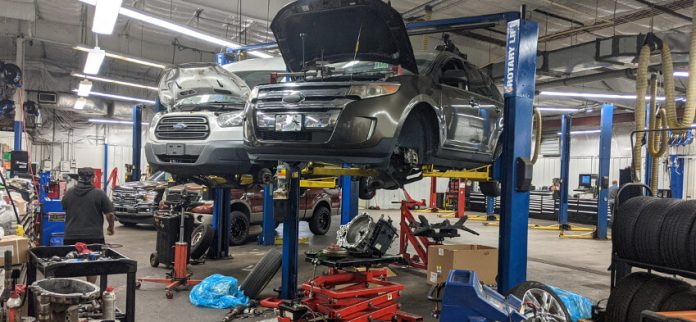
Your car is one of your most valuable assets, and it is very important to take care of it so that it lasts as long as possible. Regular car maintenance is the key to long-term and high-quality operation of your car, and most importantly – your safety. In this article, we will discuss the key positive aspects of regular maintenance, what it includes, the pros and cons of self-repair compared to a professional car service. We will also tell you what items are included in maintenance and signs of possible car breakdowns.
6 main benefits of regular maintenance
Conducting periodic car maintenance provides a number of benefits, which include:
Extending the lifespan of a car: Scheduled car maintenance is an important factor in maintaining its optimal condition and increasing its service life. This approach allows you to avoid costly repairs and increase the service life of the vehicle, which in turn helps save financial resources.
Improved performance: Regular maintenance can improve the performance of your car. For example, changing the oil and filters helps reduce friction in the engine and improve its operation, and replacing the brake pads increases the level of safety when braking.
Increased safety: Regular maintenance also improves safety on the road. During maintenance, specialists check all systems and components of the car, identify possible problems and eliminate them. This helps prevent accidents related to a car malfunction.
Fuel economy: One of the equally important benefits of regular maintenance is fuel economy and reduced consumption. Clean filters, a properly tuned engine and the correct tire pressure help reduce fuel consumption.
Maintaining your warranty: The manufacturer’s warranty is only fully maintained if your vehicle is serviced regularly. If your vehicle is under warranty, regular maintenance is essential to maintaining the warranty.
One of the key factors for the normal operation of your vehicle and safe driving is regular maintenance. If it is carried out routinely and on schedule, it will help prevent any potential problems or breakdowns in advance and, as a result, avoid emergency situations and unexpected costly repairs.
Maintenance includes: 4 main points
At a service station, a mechanic or technician will check and service various components of your vehicle, such as the engine, brakes, tires and fluids. The specific tasks performed at the service station will depend on the type of service and the manufacturer’s recommendations. However, some common tasks include:
Oil Change: During an oil change, a mechanic drains the old oil and replaces it with fresh oil. They may also change the oil filter.
Tire Rotation: Tire rotation involves moving the tires from one position to another to ensure even wear. This will help promote a longer life for your tires.
Brake Inspection: A mechanic will typically inspect the calipers, rotors, and brake pads, rotors, and calipers to make sure they are in good condition. If necessary and sufficiently worn, the brake pads will need to be replaced.
Fluid Top-Up: A technician will need to check and refill any missing fluids in your vehicle. Fluids that need to be checked typically include brake fluid, transmission fluid, and coolant.
How often you should schedule your vehicle for maintenance will depend on the manufacturer’s recommendations and your driving habits. For example, some manufacturers recommend changing the oil every 6,000 miles, while others recommend changing it every 3,000 miles.
DIY vs. Professional
While some vehicle maintenance tasks can be performed by the vehicle owner, others are best left to the professionals. DIY auto repair can be cost-effective and empowering, but it can also be risky if you don’t have the necessary experience. Making a mistake during a DIY repair can result in damage to your vehicle and even voiding your warranty.
Additionally, DIY repairs can take longer and may not be as thorough as a professional repair.
On the other hand, a professional auto repair is more expensive but offers a number of benefits. First, professional mechanics have the training, experience, and equipment to identify and fix potential problems. They can also provide documentation of the service, which can be useful if you need to file a warranty claim or sell your car. Finally, many car manufacturers require regular professional servicing to maintain the warranty.
Ultimately, the choice between doing it yourself or going to a professional auto repair shop will depend on your comfort level, experience, and budget. If you have the skills and experience, you can do some tasks yourself, but it’s important to know when to call in professional help.
What Maintenance Tasks Can You Do Yourself
There are several car maintenance tasks you can do yourself to keep your car in good condition. These include:
Checking Tire Pressure: Keeping your tire pressure correct can improve fuel economy, tire wear, and handling. Use a tire pressure gauge to check the tire pressure and add air if necessary.
Replacing Windshield Wipers: Windshield wipers should be replaced every six months to a year, depending on use. Old wipers may streak or skip, reducing visibility.
Checking Fluid Levels: Regularly checking and adding the various fluids in your vehicle, such as coolant, brake fluid, and transmission fluid, can help prevent damage to your vehicle.
Replacing Air Filters: Failure to change air filters on time can result in reduced engine power and fuel efficiency. Replace them at least once a year, or more often if you drive in dusty or dirty conditions.
Signs That Your Car Needs Repairs
There are several signs that your car may need service, including:
Strange noises. Unusual sounds such as squealing, grinding, or rattling may indicate problems with your car’s brakes, suspension, or engine.Poor performance: If your car runs sluggish, accelerates poorly, or is hard to start, it may indicate a problem with the engine or fuel system.
How to Find a Reliable Auto Repair Shop for Car Maintenance
Finding a reputable auto repair shop is crucial to ensuring high-quality service for your car. Here are some tips on how to find a reliable service provider:
Read Reviews: Look for online reviews and feedback from other customers to get an idea of the service provider’s reputation.
Check Credentials. Make sure the service provider is licensed, insured and certified by the appropriate industry organizations.
Ask for Referrals: Ask friends, family and co-workers to recommend car service providers they trust.
Conclusion
REMEMBER: If you want to extend the life of your car, regular maintenance is one of the key factors in this regard and can also help in more efficient fuel use and preventing breakdowns. By taking care of your car through regular servicing and maintenance, you can ensure that it runs smoothly and safely for many years to come. You can always contact our car service, where your car will be gladly provided with professional technical assistance.
,
VEBER-AUTO car service
194044, St. Petersburg
Neyshlotskiy pereulok, house 5, building 3
District: Vyborgsky
Metro: Vyborgskaya – 800 m.
,
Seven days a week, from 9:00 to 21:00.
,
sto@veberauto.ru
,
8 (812) 321-00-00









